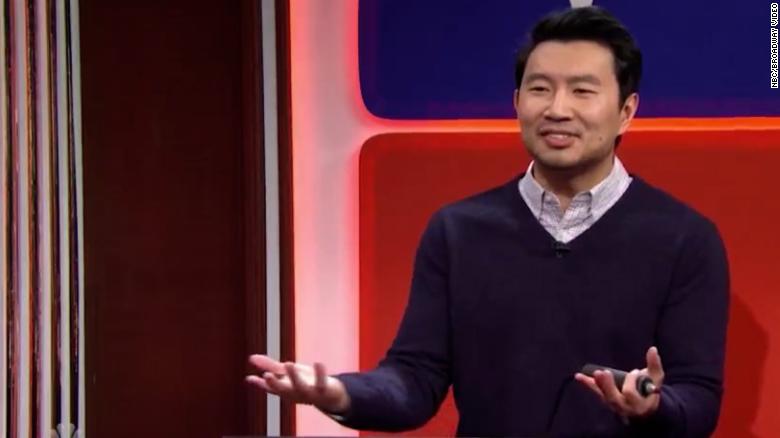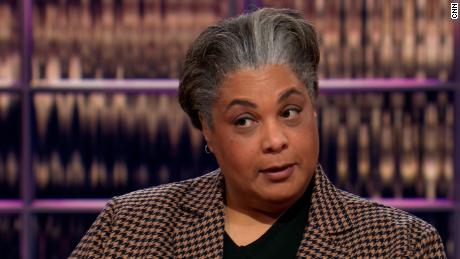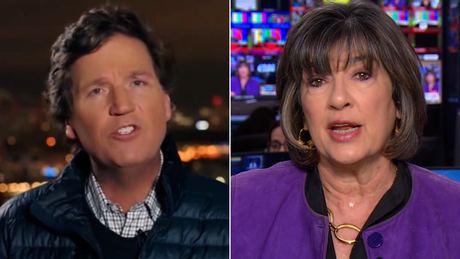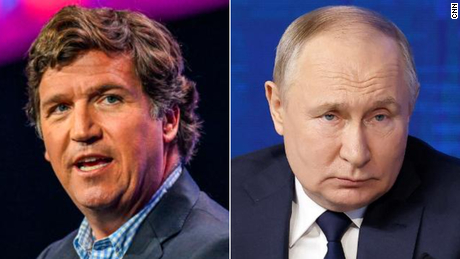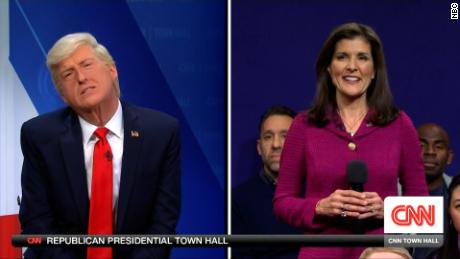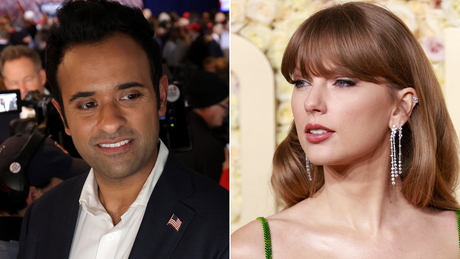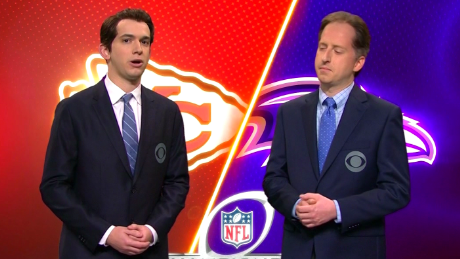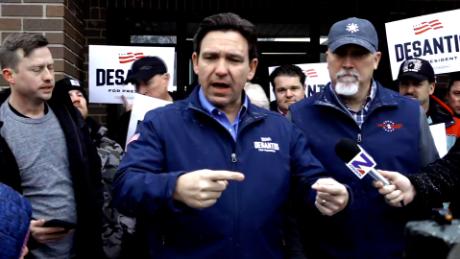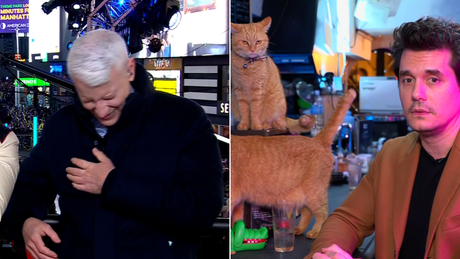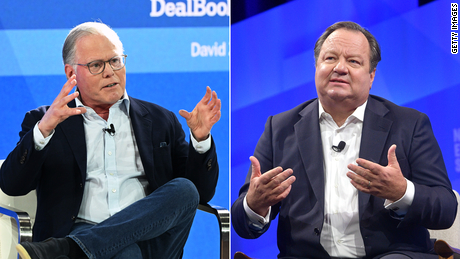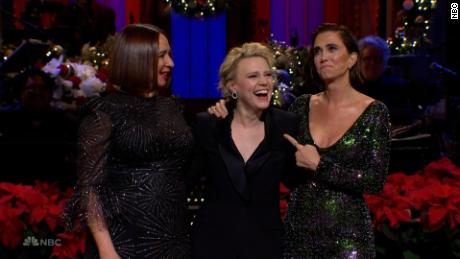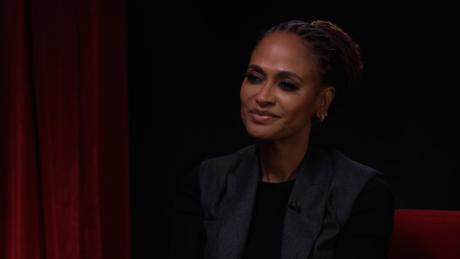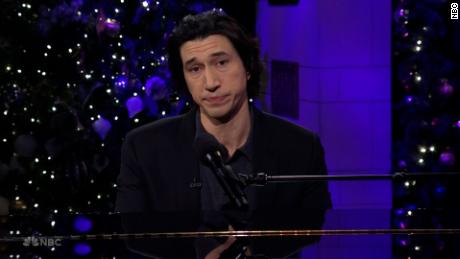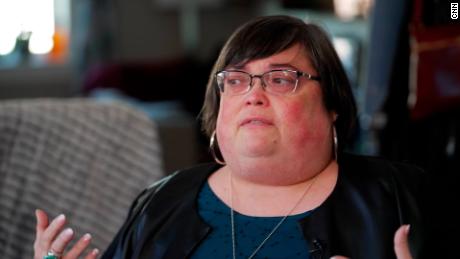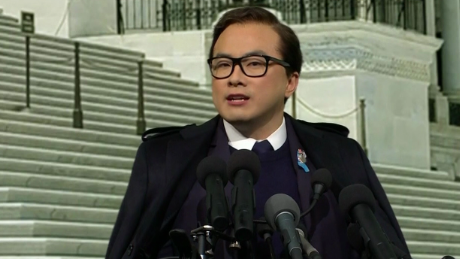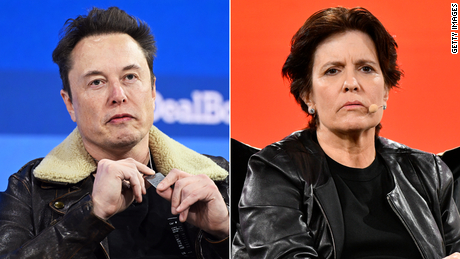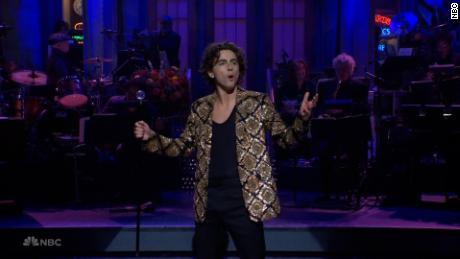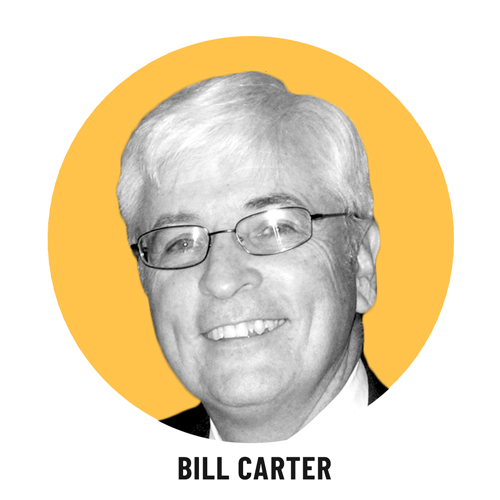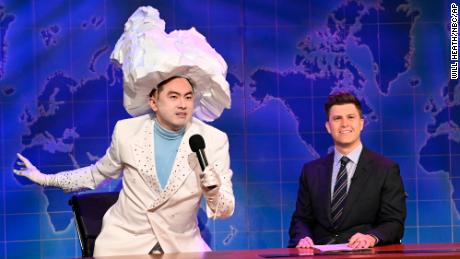Bill Carter, a media analyst for CNN, covered the television industry for The New York Times for 25 years, and has written four books on TV, including The Late Shift and The War for Late Night. The opinions expressed in this commentary are his own.
I confess to being old enough to have watched the premiere of "Saturday Night Live" in 1975. It was, from the start, exciting, ground-breaking television.
Since then, I have seen the majority of episodes. Not all of them, of course, because like most "SNL" viewers, I have found some periods in its mostly spectacular history more appealing (as in, funnier) than others.
I have never held the fallow periods against the show, because the show's creative maestro, Lorne Michaels, somehow always manages to find the way back to relevance and inspired comedy. (You're not going to stay on the air for nearly 50 years if you can't.)
So I feel reasonably well-equipped to say: The current season, which has reached its holiday hiatus point, can be legitimately ranked with past examples (Season 26 in 2000 when Tina Fey and Jimmy Fallon teamed up on Weekend Update; Season 21 in 1995 when Will Ferrell and others joined the cast) as a genuine comeback story.
I'm not alone. Reviews for this season have been substantially positive. A typical comment, this one from Kelly Lawler at USA Today: "'SNL' this season so far has been unexpectedly hilarious, delightful and thrilling."
That's not an appraisal "SNL" was routinely receiving in recent years, when criticism was lobbed at the show for being creatively stalled.
So what changed?
The most obvious answer: we are not in the middle of a presidential race. "SNL" has always thrived on political satire; parodies of debates and other campaign moments have generated some of its most memorable sketches and catchphrases: "Strategery" from Will Ferrell as George Bush in 2000; "I can see Russia from my house!" from Tina Fey as Sarah Palin in 2008; "Who am I? Why am I here?" from Phil Hartman as Admiral James Stockdale in 1992.
And when Donald Trump emerged as candidate and then president, the show experienced a jolt of positive attention from Alec Baldwin's extremely broad Trump impression.
But as has happened with "SNL" in the past, expectations that the show must jump on every egregious event coming out of Washington sometimes winds up forcing creative decisions. In the case of Trump, there were a slew of those events, many so closely resembling the theater of the absurd they were almost impossible to parody (drinking bleach; redrawing weather maps; Mexico paying for the wall).
In the last few years of Trump-centric news, "SNL" seemed to exhaust itself in search of a fresh comic take, something other than how ridiculous or menacing Trump could be.
It didn't help that the entire world of late-night was equally suffused in Trump-preposterousness, because of comedy imperatives and the conviction that his actions had to be mocked.
This season has brought the first sustained respite from Trump in seven years. The character has appeared, but sparingly, and the impression, performed by new cast member James Austin Johnson, is more character than caricature. Johnson is capturing the Trump voice and mannerisms as they really are, not as a cartoonish performance. (Baldwin, to be fair, was very funny in many sketches in the early Trump years.)
Notably, the show has also done little of substance with Joe Biden, though Johnson also has a skillful take on him. Jim Carrey was an exceptional bit of star-casting, but he didn't knock critics out.
Perhaps because of the huge focus on politics, or because the cast has not been the most memorable, Michaels did a lot of that stunt-casting in recent years, especially in bringing back cast favorites. But the best seasons of "SNL" have been all about the regular cast.
And that's what has been happening this year. Some relatively newer cast members are moving to the forefront. Bowen Yang is proving extremely versatile; and Pete Davidson, who earlier leaned heavily on his stand-up skills, has made a mark with well-formed sketch characters (his Andrew Cuomo is dead-on great) and in music videos. (The "Walking in Staten" parody of "Walking in Memphis" is a highlight of this season.)
But there have been other highlights, some generated by hosts, many of whom excelled this season. Maybe most surprising was Kim Kardashian, who defied expectations by shining in her appearance. (One line from her monologue: "I'm just so much more than that reference photo my sisters showed their plastic surgeons.") Kieran Culkin and Simu Liu were also very busy in their stints, a sign the writers saw real comedy chops. So was Billie Eilish, who had a highlight commercial parody on top of two eye-popping music performances.
Still, by almost universal agreement, the standout performance of the season was turned in by long-time cast member Cecily Strong, with an impassioned Weekend Update segment as Goober the clown, a searingly funny commentary about abortion rights.
Weekend Update also seems refreshed. After some seasons where the jokes felt flat, they have been sharp and more frequently laugh-out-loud: "An 83-year-old man has become the oldest person ever to hike the Appalachian Trail. The man dedicated the walk to his wife . . . who died a few miles back."
Overall it's enough to conclude, with the heavy lift of a presidential election year behind it, something really interesting is happening at "SNL" again. To put a spin on Chevy Chase's now-famous words from his early days on the show: Unlike Generalissimo Francisco Franco, "SNL" is still alive!

